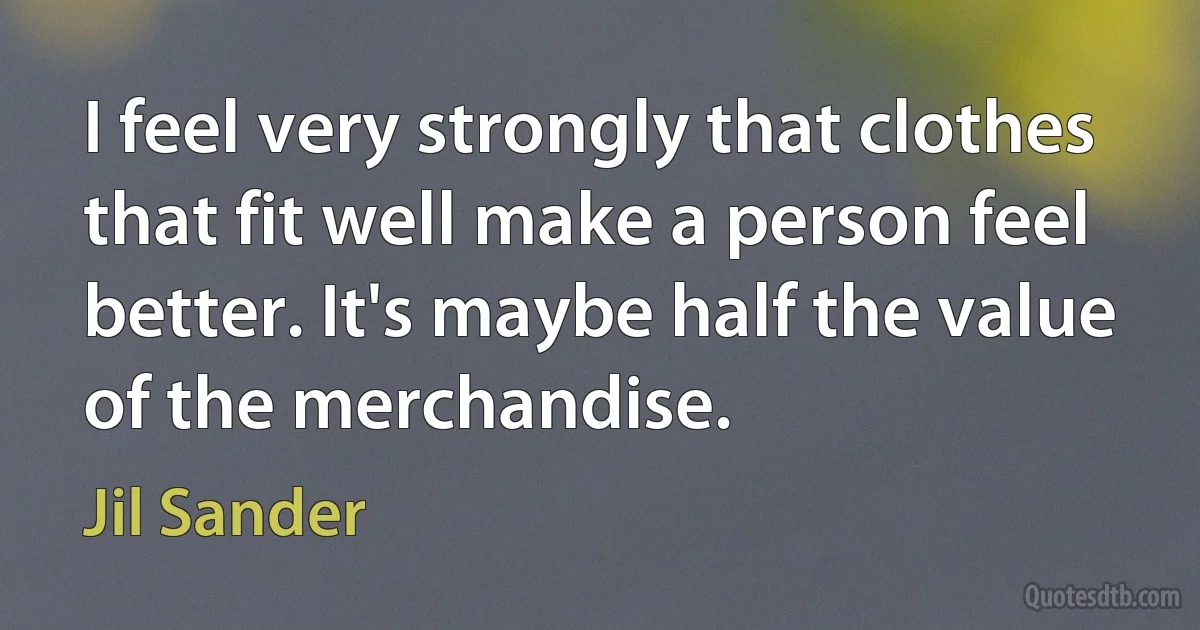Merchandise Quotes - page 2
What is needed then? Destroy poverty, that source of crime, by assuring to each the satisfaction of all needs! And how difficult is this to achieve? It would suffice to establish society on new bases where everything would be in common and each, producing according to their aptitudes and strengths, could consume according to their needs. Then we would no longer see people like the hermit of Notre-Dame-de-Grace and others crave a metal of which they become the slaves and the victims! We would no longer see women flaunt their charms, like a vulgar merchandise, in exchange for this same metal that so often prevents us from recognising if the affection is truly sincere.

Ravachol
In order better to grasp the thought of Malthus, let us translate it into philosophical propositions by stripping it of its rhetorical gloss: -
"'"Individual liberty, and property, which is its expression, are economical data; equality and solidarity are not."
"Under this system, each one by himself, each one for himself: labor, like all merchandise, is subject to fluctuation: hence the risks of the proletariat."
"Whoever has neither income nor wages has no right to demand anything of others: his misfortune falls on his own head; in the game of fortune, luck has been against him."
From the point of view of political economy these propositions are irrefutable; and Malthus, who has formulated them with such alarming exactness, is secure against all reproach. From the point of view of the conditions of social science, these same propositions are radically false, and even contradictory.

Pierre-Joseph Proudhon
Seeing that I can find no subject specially useful or pleasing - since the men who have come before me have taken for their own every useful or necessary theme - I must do like one who, being poor, comes last to the fair, and can find no other way of providing himself than by taking all the things already seen by other buyers, and not taken but refused by reason of their lesser value. I, then, will load my humble pack with this despised and rejected merchandise, the refuse of so many buyers; and will go about to distribute it, not indeed in great cities, but in the poorer towns, taking such a price as the wares I offer may be worth.

Leonardo da Vinci
Some commentators point out that with present birth rates it will not be long before Negroes are a majority in many of the major cities of the nation. As a consequence, they can be expected to take political control, and many people are apprehensive at this prospect. Negroes do not seek political control by this means. They seek only what they are entitled to and do not wish for domination purchased at the cost of human misery. Negroes were once bred by slave owners to be sold as merchandise. They do not welcome any solution which involves population breeding as a weapon. They are instinctively sympathetic to all who offer methods that will improve their lives and offer them fair opportunity to develop and advance as all other people in our society.

Martin Luther King Jr.
A transition, therefore, is not undeservedly made from sense to consideration, and from this to the nobler energies of intellect. Hence, as the certain knowledge of numbers received its origin among the Phœnicians, on account of merchandise and commerce, so geometry was found out among the Egyptians from the distribution of land. When Thales, therefore, first went into Egypt, he transferred this knowledge from thence into Greece: and he invented many things himself, and communicated to his successors the principles of many. Some of which were, indeed, more universal, but others extended to sensibles.

Proclus
In Hind there is a Malik (king) who is called Al-juzar (Gujar). Such is awdl (justice) in his kingdom, if the gold is dropped in the way, there is no danger of its being picked up and stolen away by any body. His kingdom is very vast. Arab traders go to him, he makes ahsan (favour) to them, purchases merchandise from them; the purchase and sale are carried in gold coin called tatri, When the Arabs request him to provide a body guard, he says, there is no thief in my kingdom. If there is any incident or loss to your goods, merchandise and money I stand surety. Come to me, I will pay the compensation.

Mihira Bhoja I
This caravan loaded with synthetic merchandise has, however, continued to move forward. Eight years later (1982), it was reported that "History and Language textbooks for schools all over India will soon be revised radically. In collaboration with various state governments the Ministry of Education has begun a phased programme to weed out undesirable textbooks and remove matter which is prejudicial to national integration and unity and which does not promote social cohesion. The Ministry of Education's decision to re-evaluate textbooks was taken in the light of the recommendations of the National Integration Council of which the Prime Minister [Indira Gandhi] is Chairman. The Ministry's view was that history had often been used to serve narrow, sectarian and chauvinistic ends.”.

Sita Ram Goel
Religion is all profit. They have no merchandise to buy, no commissions to pay, and no refunds to make for unsatisfactory service and results....
Their commodity is fear. They blackmail their parishioners with threats of hell and damnation. These poor deluded people give them their hard earned money to save them from a hell that does not exist, and from eternal torment that was invented by the perverted minds of priests to rob the living and in addition, they are exempt from taxation! Insult to injury!
Let me tell you that religion is the cruelest fraud ever perpetrated upon the human race. It is the last of the great scheme of thievery that man must legally prohibit so as to protect himself from the charlatans who prey upon the ignorance and fears of the people.
The penalty for this type of extortion should be as severe as it is of other forms of dishonesty.

Joseph Lewis



